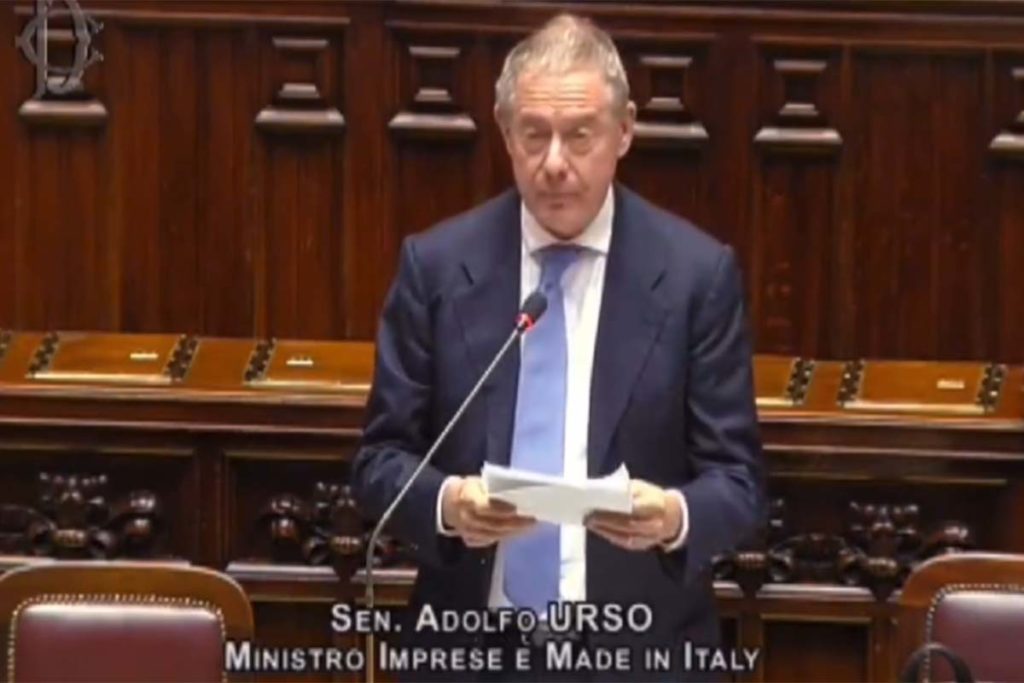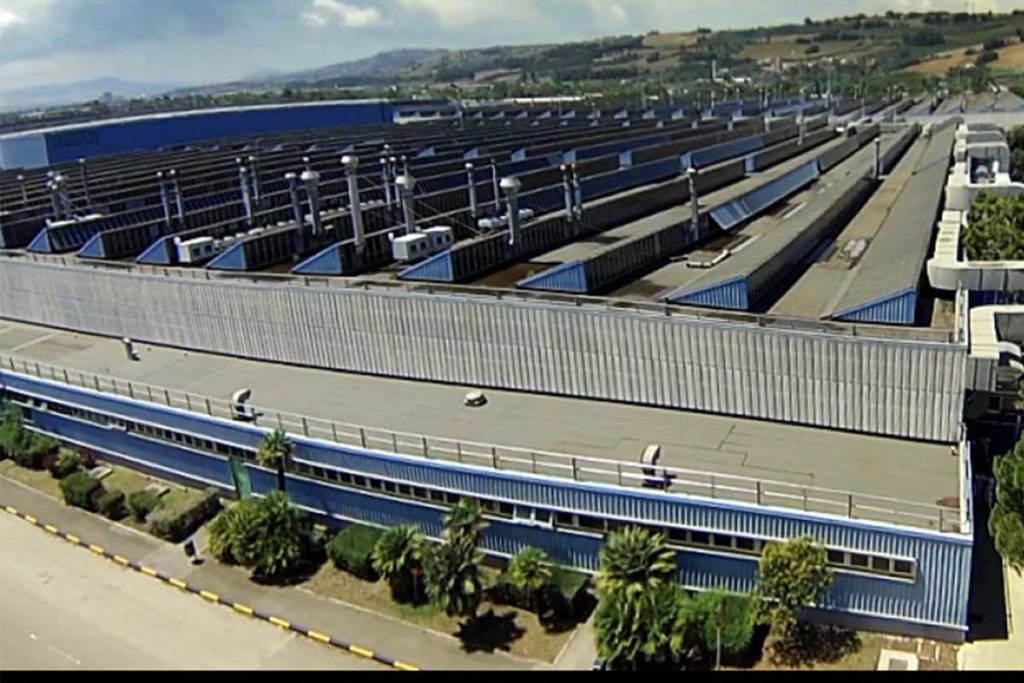
The relationship between Stellantis and the Italian government is looking more and more like a dog and cat situation. For months now, tensions have been mounting over production stoppages and delays, particularly concerning the Termoli battery Gigafactory. Statement by the Minister of the Economy, Adolfo Urso, sums up the current state of the Italian automotive industry: "We have become the leading automotive country... in terms of layoffs."
An industry in crisis: production stoppages and uncertainty

Repeated stoppages at emblematic plants such as Pomigliano, Cassino, Turin, and now Termoli, illustrate a deep crisis. The project to convert the Termoli plant into a Gigafactory for electric vehicle batteries managed by the ACC joint venture (Stellantis, Mercedes-Benz and TotalEnergies), is the focus of much frustration. Despite its strategic importance to Europe's energy transition, the project is racking up delays and broken promises.
Last September 17, a high-voltage meeting was held at Palazzo PiacentiniThe meeting was held at the headquarters of the Ministry of Enterprise and Made in Italy (MIMIT). Representatives of Stellantis, Mercedes-Benz, TotalEnergies, the Molise region and the trade unions had been summoned to obtain answers on the timescales for Termoli's reconversion and on the promised maintenance of jobs. The meeting left a bitter taste: a lot of talk, but few guarantees.
Growing impatience within the government
Minister Urso no longer hides his exasperation. During recent parliamentary debates, he sharply criticized Stellantis for its lack of strategic vision. Carlos Tavares, the group's CEO, was accused of practicing radio silence, avoiding to present a clear industrial plan. As for John Elkann, Chairman of Stellantis, his refusal to respond directly to summonses shocked the Italian hemicycle.
"Stellantis must meet its commitments or face drastic consequences," the minister warned. The Italian government, after increased the Automotive Fund to 640 million euros to support the energy transition, demands a clear return on investment: models produced in Italy, jobs preserved, and convincing industrial plans.
Giorgia Meloni takes to the stage
Faced with the stalemate in discussions, the metalworking unions (Fim, Fiom and Uilm) recently requested direct intervention by the Prime Minister, Giorgia Meloni. They are calling for an emergency meeting at Palazzo Chigi, stressing that the status quo is no longer acceptable. Pressure is mounting, and the confederal organizations are threatening direct action if their demand goes unanswered.
A strategic sector at a crossroads
Beyond the Termoli Gigafactory, it's the entire Italian automotive sector is at a turning point. The transition to electric vehicles requires not only massive investment, but also a close coordination between government and industrys. For Italy, cradle of prestigious brands such as Fiat, Alfa Romeoand MaseratiFailure is not an option. Yet current tensions show that the road ahead is fraught with difficulties.
The stakes go beyond mere economic considerations. The Meloni government has made industrial sovereignty a priority. On several occasions, Minister Urso has stressed the importance of relocating production to Italy, particularly for Fiat models currently manufactured in Serbia, Poland and Morocco. This reshoring is seen as vital to preserving jobs and maintaining a competitive industrial fabric.
What does the future hold for the Italian automotive industry?
While Stellantis is preparing to unveil an "Italy plan" by December, expectations are high. This plan will have to convince the government and the unions by guaranteeing clear investments, an increase in the capacity of Italian plants, and a real consideration of social issues.
In the meantime, Italian workers and managers remain in a state of uncertainty. The next few months will be decisive for the future of the Italian automotive industry, a sector that represents not only the country's history, but also its industrial identity. If Stellantis is to avoid a total break with Rome, he will have to prove that he can be a reliable partner for Italy.
Despite this alarming situation, new prospects for the italian automotive industry. Stellantis has confirmed the imminent arrival of several strategic models, all produced in Italy :
- Late 2025: a Fiat thermal hybridan alternative for more accessible segments;
- 2025: a new Alfa Romeo Stelvioa key model for Alfa Romeo's premium brand;
- 2026: an Alfa Romeo Giulia new generation ;
- 2027: a Lancia Gammaembodying the revival of this historic Italian brand;
- 2027: a new Maserati Levante SUVdesigned to strengthen the trident's SUV range;
And in 2 years' time, Scrooge will be retiring in peace and quiet, leaving a trail of ruins wherever he goes...
Going all-electric at a time of sluggish sales means layoffs. The Fiat 500e is the best example of this: it's an excellent city car, well finished, pleasant to drive, but far too expensive and with just the right range, not to mention the many obstacles to switching to electric. As a result, sales are poor, with regular production stoppages.
The thermal version is on its way, but it's so late.
And what's worse, Stellantis is only just beginning to understand his mistakes.
They're well aware of the error of their ways, but the automakers are playing the fool, pretending to complain about the obligation to go all-electric, because in reality it suits them just fine. Going all-electric means 40% fewer components, fewer subcontractors and, above all, higher margins.
In France, we have a plant in the north of the country that casts connecting rods for engines, which is in difficulty, and others that make aluminum engine parts. In Italy, Bosch is closing a diesel injector plant........in a few years, there will be trouble at Magneti Marelli, Valeo and Zf....ect.....
Melfi will be home to the future DS8, for which images of the prototype have just been unveiled, and the future Compass. They will all be based on the Medium platform, like the 3008/5008. These three models should keep the plant running smoothly.
Tremoli, the ACC project urgently needs to be launched, but given the sluggish sales of EVs at the moment, it's understandable that the group is reluctant to take the plunge...
Mirafiori/Turin is also urgent. The 500 hybrid won't be enough to keep the site running at full capacity. What about this "Green Campus" project like in Poissy? What is a Green Campus anyway?
When are we going to stop this massacre!!!!
Europe is crazy! Stop this electrical madness and all this carnival of measures to save the planet !!! Green nonsense!
No one in their right mind would invest in Italian manufacturing. Look at the radical left unions that keep occupying the GKN plant in Florence - absolute madness that this thing can happen in a 1st world economy. It's like 1968 all over again - Stellantis shouldn't make the mistake of relying on it's Italian plants too much.